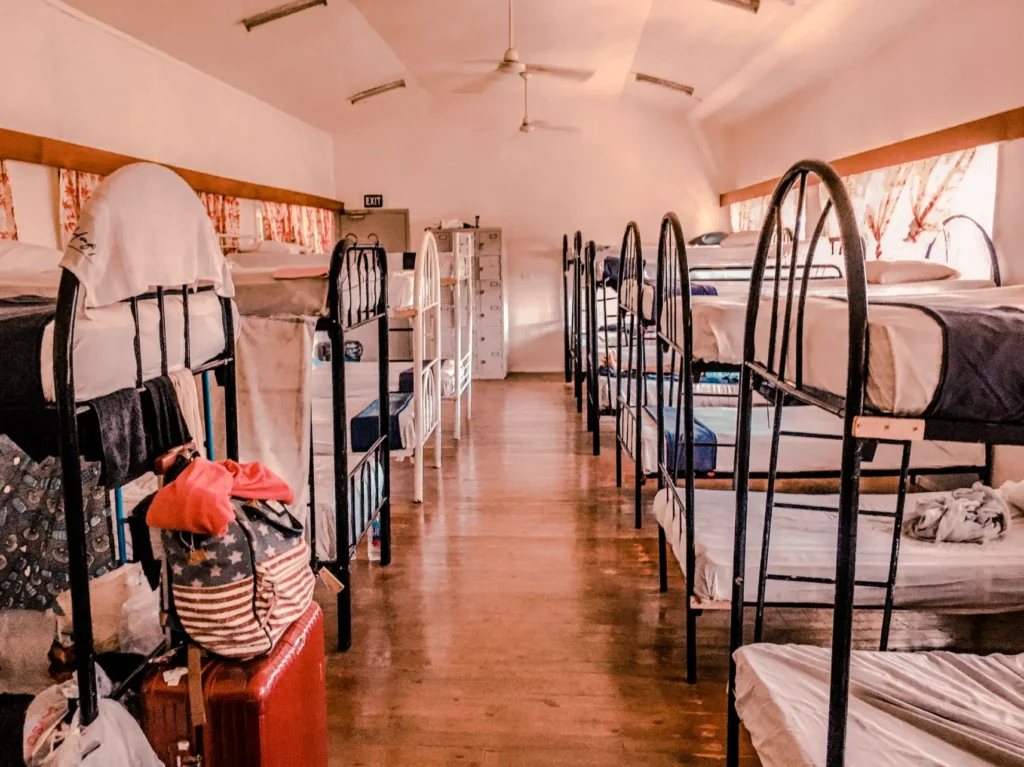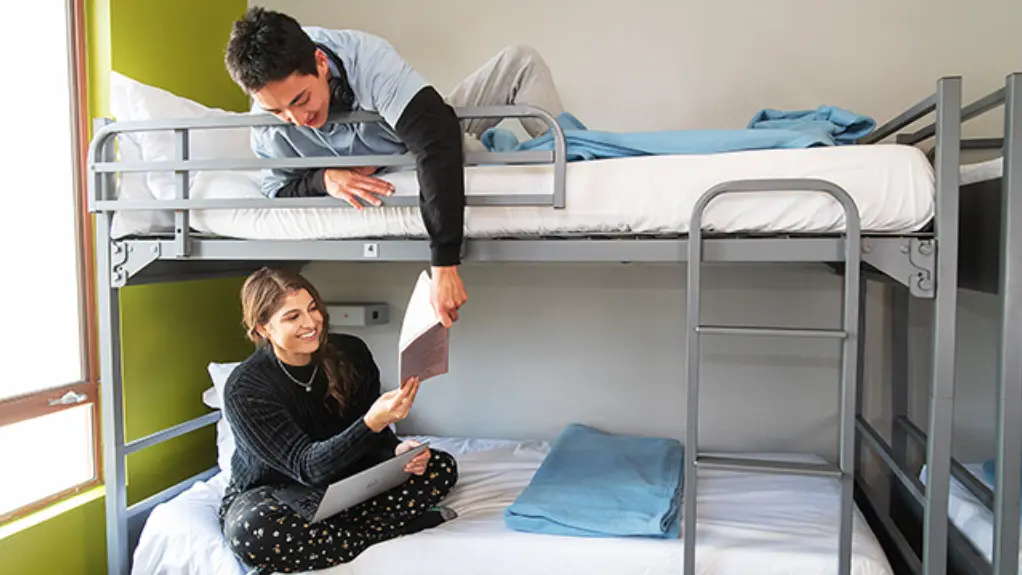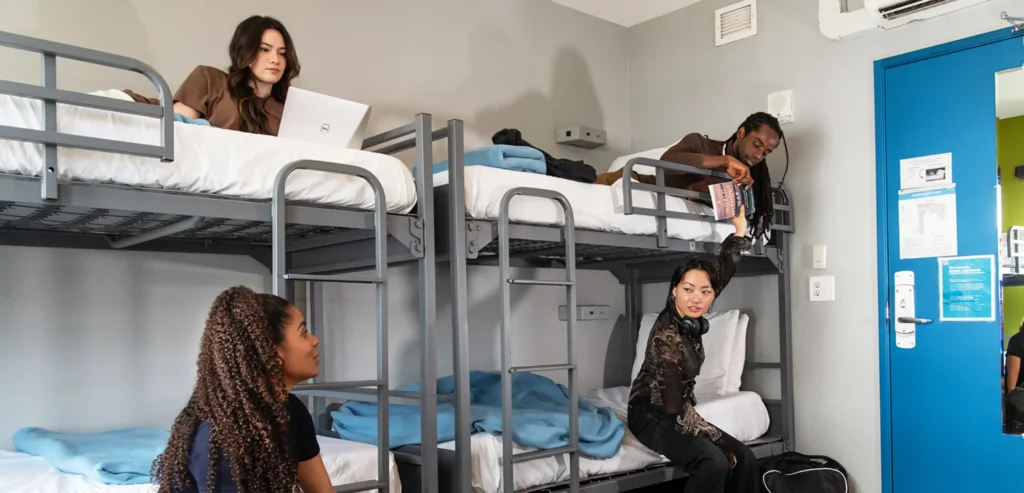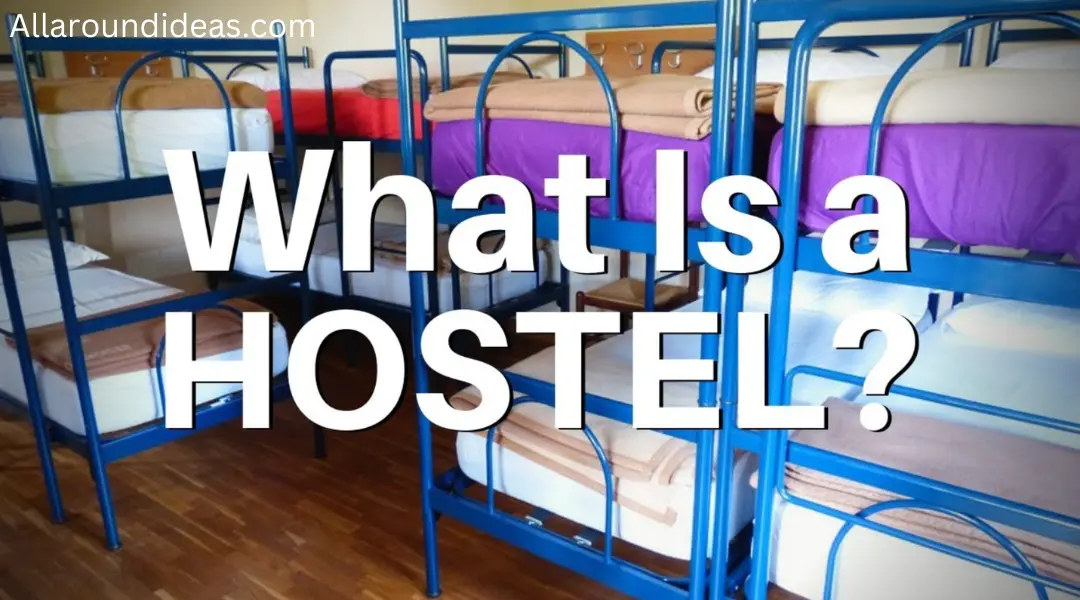In recent years, the concept of hostels has gained popularity among travelers seeking affordable accommodations. Often associated with youth travel and adventure, hostels offer a unique alternative to traditional hotels and motels. This article explores that what is a hostel, its history, the various types available, and the pros and cons of staying in one.
What is a Hostel?
A hostel is a budget-friendly accommodation option that typically provides dormitory-style sleeping arrangements as well as private rooms. Hostels are known for their communal atmosphere, often featuring shared kitchens, bathrooms, and social spaces where travelers can interact and exchange stories. This type of lodging is popular among backpackers, solo travelers, and those seeking a more social experience during their trips.
If you want some information about What is a Cappuccino then checkout our previous blog post.

Characteristics of Hostels
- Shared Accommodations: Most hostels offer dormitory-style rooms where guests sleep in bunk beds. This arrangement allows for more guests to stay in one room, reducing costs for everyone.
- Social Environment: Hostels often foster a communal atmosphere, encouraging interactions among guests. Common areas such as lounges and kitchens serve as meeting points where travelers can socialize.
- Affordable Pricing: Hostels generally provide more budget-friendly rates compared to hotels, making them an attractive option for cost-conscious travelers.
- Amenities: Many hostels offer basic amenities like Wi-Fi, laundry facilities, and kitchen access, allowing guests to prepare their own meals and save on dining costs.
- Varied Room Types: In addition to dormitory rooms, many hostels also provide private rooms for those seeking more privacy. These private rooms may still be more affordable than hotel rooms.
The History of Hostels
The concept of hostels dates back to the early 20th century when the first youth hostels emerged in Germany. Founded by Richard Schirrmann, these early hostels aimed to provide affordable accommodation for young travelers, particularly those on foot or bicycle. The idea quickly gained popularity, and the youth hostel movement spread across Europe and beyond.
In the 1960s and 1970s, the rise of backpacking culture further fueled the growth of hostels, as more travelers sought low-cost options for their journeys. Today, hostels can be found in virtually every corner of the globe, catering to diverse travelers—from students and backpackers to families and digital nomads.
Types of Hostels
While all hostels share some common features, they can differ significantly in terms of ambiance, target audience, and available amenities. Here are some common types of hostels:
1. Traditional Hostels
These are the classic hostels that most people envision—dormitory-style accommodations with shared facilities. Traditional hostels often attract younger travelers and those looking for a social experience.
2. Boutique Hostels
Boutique hostels combine the affordability of traditional hostels with a stylish, design-oriented environment. They often feature unique decor, modern amenities, and a more upscale experience while still maintaining budget-friendly rates.
3. Party Hostels
As the name suggests, party hostels cater to travelers looking for a lively atmosphere. They often organize events, outings, and parties, making them popular among young backpackers seeking to socialize and have fun.
4. Family-Friendly Hostels
Some hostels are specifically designed to accommodate families, offering private rooms and child-friendly amenities. These hostels provide a more comfortable experience for parents traveling with children.
5. Eco-Friendly Hostels
With an increasing focus on sustainability, some hostels prioritize eco-friendly practices. These establishments often implement green initiatives such as recycling, energy-efficient appliances, and local sourcing of food.
6. Digital Nomad Hostels
With the rise of remote work, some hostels cater to digital nomads by providing coworking spaces, high-speed internet, and other amenities designed for those who work while traveling.

If you want some information about What is a Cappuccino then checkout our previous blog post.
Pros of Staying in a Hostel
Staying in a hostel has many advantages that can enhance the travel experience:
1. Affordability
One of the primary benefits of hostels is their budget-friendly pricing. Dormitory beds can be significantly cheaper than hotel rooms, allowing travelers to stretch their budgets further and extend their trips.
2. Social Atmosphere
Hostels are known for their communal vibe, making it easy to meet fellow travelers. Many hostels organize social events, tours, and group activities, fostering connections and friendships that can last beyond the trip.
3. Diverse Experiences
With a variety of types and styles, hostels cater to different travel preferences. Whether you’re looking for a party atmosphere or a quiet space to relax, there’s likely a hostel that fits your needs.
4. Shared Facilities
Hostels often feature communal kitchens and lounges, allowing guests to prepare their own meals, save money, and interact with others. These shared spaces can create a home-like atmosphere and encourage socializing.
5. Local Insights
Many hostel staff members are knowledgeable about the local area and can provide valuable recommendations for activities, restaurants, and hidden gems. This insider information can enhance the travel experience.
6. Unique Locations
Hostels are often located in vibrant neighborhoods, providing easy access to local attractions, nightlife, and cultural experiences. This can enrich the travel experience by placing guests in the heart of the action.
Cons of Staying in a Hostel
Despite their many advantages, hostels also have some drawbacks that travelers should consider:
1. Noise and Lack of Privacy
Dormitory-style accommodations can be noisy, especially if guests come and go at different hours. Additionally, the shared nature of hostels means less privacy, which may not suit everyone’s preferences.
2. Varying Quality
The quality of hostels can vary widely. Some may be well-maintained and clean, while others may lack basic amenities or cleanliness. It’s essential to read reviews and research before booking.
3. Limited Amenities
While many hostels offer basic amenities, they may not provide the same level of comfort as hotels. This could include smaller rooms, shared bathrooms, and fewer luxury features.
4. Shared Facilities
While shared kitchens and bathrooms can be an advantage, they can also lead to inconveniences. Long wait times or a lack of cleanliness in communal spaces can detract from the overall experience.
5. Age Restrictions
Some hostels cater specifically to younger travelers and may have age restrictions, which can be a barrier for older adults or families looking for a more inclusive environment.
6. Security Concerns
Although many hostels take precautions to ensure guest safety, shared accommodations can present security risks, such as theft or loss of personal belongings. Travelers should take care to secure their valuables.

Tips for Choosing the Right Hostel
If you’re considering staying in a hostel, here are some tips to help you choose the right one:
1. Read Reviews
Check online reviews on platforms like Hostelworld, Booking.com, or TripAdvisor. Look for feedback on cleanliness, staff friendliness, and the overall atmosphere.
2. Consider Location
Choose a hostel that is conveniently located near public transportation, local attractions, and dining options. A central location can save you time and money on travel.
3. Assess Your Priorities
Determine what you value most in a hostel. Are you looking for a social environment, privacy, or specific amenities? Knowing your priorities can guide your selection.
4. Check Amenities
Review the amenities offered, such as Wi-Fi, breakfast, laundry facilities, and kitchen access. These features can significantly impact your overall experience.
5. Look for Security Features
Ensure the hostel has proper security measures, such as lockers for personal belongings, 24-hour reception, and key card access to rooms.
6. Consider Your Travel Style
Choose a hostel that aligns with your travel style, whether you’re a solo backpacker, a family traveler, or a digital nomad. Different hostels cater to different needs.
Conclusion
Hostels offer a unique and affordable accommodation option for travelers seeking new experiences and social connections. With a history that dates back over a century, hostels have evolved to cater to diverse audiences, from young backpackers to families and digital nomads.
While there are numerous advantages to staying in a hostel, such as cost-effectiveness, social opportunities, and unique experiences, there are also drawbacks, including noise, varying quality, and shared facilities. By weighing the pros and cons and considering individual preferences, travelers can make informed decisions about whether hostels are the right fit for their journeys.
Ultimately, hostels embody the spirit of adventure and exploration, providing opportunities for cultural exchange, new friendships, and memorable experiences. Whether you’re traversing a bustling city or enjoying the serenity of nature, hostels can serve as a home away from home for travelers worldwide.
If you want some information about What is a Cappuccino then checkout our previous blog post.


